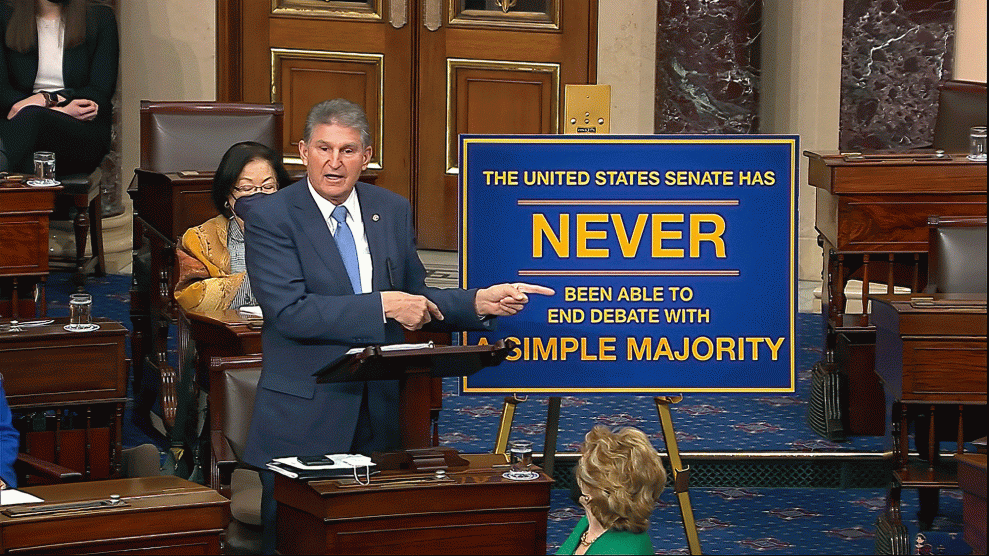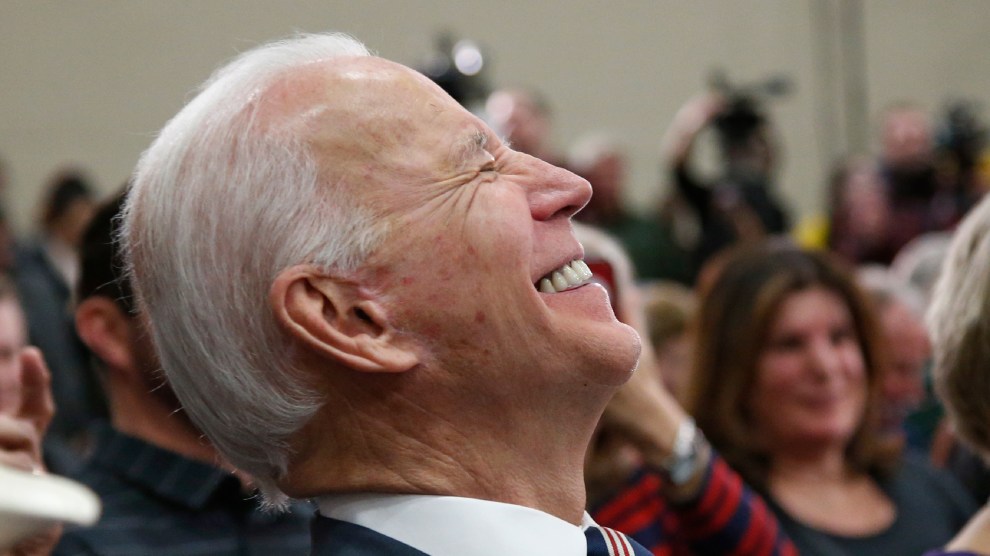
Tom Williams/Congressional Quarterly via ZUMA Press
On Friday, reports emerged that Sen. Joe Manchin (D-Wv.) torpedoed another climate change proposal and nixed Democrats’ plan to tax the rich. It’s the end of months of negotiations and the final death knell for the Biden agenda. Even centrists like Jonathan Chait in New York have said that Biden’s agenda has now, officially, failed.
After, I found myself reading a Politico summation of the Senator slash coal magnate‘s donors. It’s a lot of companies from the “energy sector.” That includes “donations from executives at Georgia Power, including the utility’s CFO Aaron Abramovitz, and from Dominion Energy CEO Robert Blue”; a maximum donation from “Energy services firm Concord Energy CEO Matthew Flavingave”; maximum donations from Southern Company Gas CEO Kim Greene and Harvest Midstream CEO Jason Rebrook”; a few thousand from “Southern Company’s chair and CEO Chris Cummiskey” and “three other company executives.” It goes on from there: thousands and thousands from gas, oil, energy types.
Remeber: Sixty-five percent of Americans support increased climate change action by the government; sixty-four percent of Americans want to tax the very rich, including a majority of Republicans.
After looking at the donations I happened to read a bit of political theorist Sheldon Wolin. He has a theory of “inverted totalitarianism.” Wolin’s theory posits that we’re turning into a thinly veiled, autocratic “managed democracy,” in which people hold less and less power, as elite individuals and institutions gain more and more.
Wolin’s argument is wide-ranging and comprehensive but as I was skimming through an essay he wrote on it, I found a couple of fun passages:
Inverted totalitarianism, in contrast, while exploiting the authority and resources of the state, gains its dynamic by combining with other forms of power, such as evangelical religions, and most notably by encouraging a symbiotic relationship between traditional government and the system of ‘private’ governance represented by the modern business corporation. The result is not a system of codetermination by equal partners who retain their distinctive identities but rather a system that represents the political coming-of-age of corporate power.
Fascinating. This too:
Thee emergence of the corporation marked the presence of private power on a scale and in numbers hitherto unknown, the concentration of private power unconnected to a citizen body.
Similarly, from our friend Wolin:
At the same time that [World War II] halted the momentum of political and social democracy, it enlarged the scale of an increasingly open cohabitation between the corporation and the state. That partnership became ever closer during the era of the Cold War (l947-1993). Corporate economic power became the basis of power on which the state relied, as its own ambitions, like those of giant corporations, became more expansive, more global, and, at intervals, more bellicose. Together the state and corporation became the main sponsors and coordinators of the powers represented by science and technology.
Check it all out here in full, if you have time.
Anyway, that’s my morning reading. Feels like there’s overlap, but I might just be projecting.













